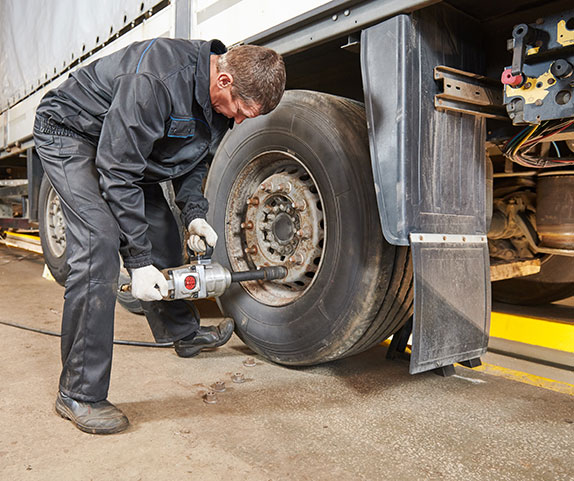Keep Rolling Smoothly: GMC Tires Service by Morris Tires
Keep Rolling Smoothly: GMC Tires Service by Morris Tires
Blog Article
Tire Service: The Effect of Climate Condition
When it concerns guaranteeing optimum performance and security when traveling, understanding the impact of weather on tire solution is important. From scorching warmth to icy roads, each weather element can considerably affect tire performance and total driving experience. By diving into the impacts of varying weather problems on tires, motorists can gain beneficial insights that might boost their automobile's performance and long life. In this conversation, we will certainly explore the elaborate connection in between climate condition and tire solution, losing light on the importance of weather-specific tire maintenance methods and considerations.
Warm and Tire Performance
When revealed to high temperatures, tires experience modifications in performance that can considerably impact vehicle security and handling. The warm created from prolonged driving or heat problems creates the tire rubber to soften, causing lowered walk life and boosted wear. As the rubber becomes softer, the tire's grasp on the road decreases, impacting stopping ranges and total grip. In extreme situations, extreme warmth can also cause tire blowouts, posing a severe security threat to the vehicle and its occupants.

Winter Impacts
Cold weather condition conditions can have a substantial effect on tire efficiency and safety and security. As temperatures decline, tire rubber can set, resulting in lowered traction on icy or snow-covered roadways. In winter, tires may additionally shed air stress more quickly, which can impact handling and gas effectiveness. Additionally, cold temperature levels can trigger tire sidewalls to stiffen, increasing the risk of damage from gaps or various other road threats.
To reduce the effects of winter on tires, it is important to regularly check tire pressure and inflate them to the supplier's advised levels. Using winter season or all-season tires developed for winter problems can also boost grip and grasp on icy or snowy roadways. Proper tire maintenance, including regular evaluations for wear and damage, becomes also much more crucial throughout cooler months to make certain ideal performance and safety.
Rainy Conditions Impact
Tires with worn-out treads are much more susceptible to hydroplaning, where a layer of water constructs up in between the roadway and the tire surface area, leading to loss of traction. To fight this, chauffeurs ought to consistently examine their tires for sufficient tread depth and take into consideration spending in tires specifically made for damp problems.
Furthermore, stormy weather condition can also reduce presence, making it testing for vehicle drivers to see the road ahead plainly (GMC Tire Service). In such conditions, it is vital to change driving rates as necessary and keep a secure complying with distance to permit for abrupt stops. Properly filled with air tires can likewise assist in preserving control on wet roadways by providing better handling and grip
Snow and Tire Safety
Snow-covered roads pose special obstacles for chauffeurs, highlighting the significance of correct tire option and upkeep. When driving in snowy problems, having the appropriate tires can make a substantial distinction in security and efficiency. Winter months tires are made with special rubber substances and tread patterns to offer much better traction on snow and ice compared to all-season tires. The deeper footsteps and sipes of winter months tires aid grasp the road better, reducing the threat of gliding and sliding.

In addition, vehicle drivers ought to think about setting up tire chains in morris tires extreme snowy conditions. Tire chains offer added traction by clutching the snow and ice, enhancing stability and control. However, it is important to adhere to manufacturer instructions when setting up and using tire chains to protect against damage to the tires and lorry. By choosing the ideal tires, keeping proper inflation, and considering extra grip help like tire chains, drivers can boost their safety when browsing snow-covered roads.
Weather-Related Tire Maintenance
When faced with numerous weather problems, appropriate tire maintenance becomes an essential facet of vehicle safety and performance. Weather-related tire maintenance encompasses a series of practices focused on making certain optimal tire feature and durability in different weather condition scenarios. One crucial aspect of weather-related tire upkeep is tire pressure guideline. Rising and fall temperature levels can cause tire stress to differ, impacting grip and fuel efficiency. Regularly changing and inspecting tire pressure according to producer recommendations is necessary for secure driving in changing climate condition. Furthermore, tire tread deepness plays a significant function in dealing with different climate aspects. Tires with ample walk depth give much better grasp on wet or icy roadways, decreasing the danger of skidding or hydroplaning. Inspecting tire step frequently and changing tires when walk wear reaches a particular deepness is crucial for maintaining traction and security in adverse weather. By prioritizing weather-related tire upkeep, drivers can enhance security, improve vehicle performance, and extend the lifespan of their tires.
Final Thought
In conclusion, weather conditions have a significant effect on tire performance and security. From warm influencing tire pressure and use to cold weather decreasing traction, it is essential to consider the weather condition when maintaining and utilizing tires.
In this discussion, we will discover the intricate connection between climate problems and tire solution, dropping light on the value of weather-specific tire upkeep methods and considerations.

Report this page